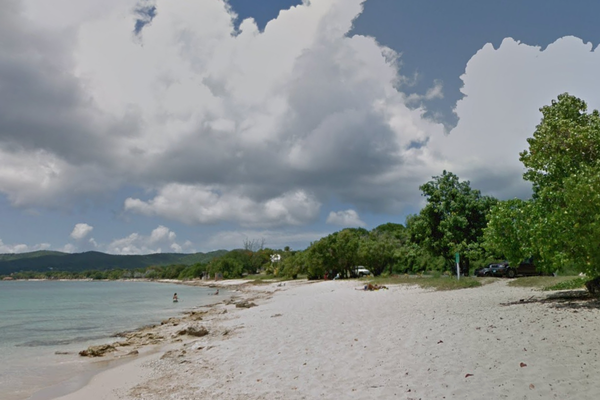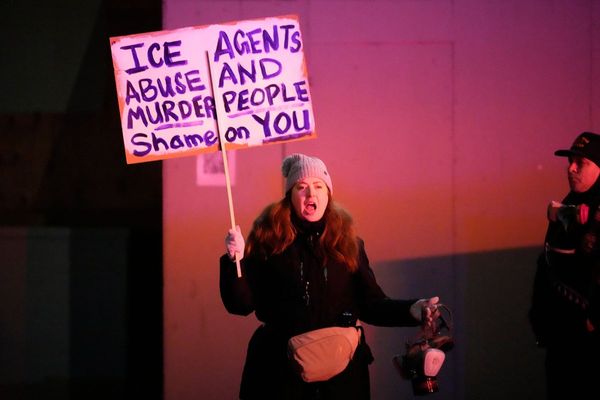
In the wood-panelled courtroom, with low winter light filtering through high windows, our barrister sat down after making his final submissions, and Mr Justice Williams began to speak. It had taken us 14 months to reach this moment at the Royal Courts of Justice, to hear the high court judge’s decision on our application for disclosure of confidential documents in three sets of family court proceedings relating to the murdered schoolgirl Sara Sharif – and whether we would be allowed to publish the information they contained.
And for a few minutes, from a press freedom perspective, it seemed that things were going well: Williams gave what we believe is unprecedented permission for disclosure of dozens of documents.
And then he dropped a bombshell: none of the three judges who had made decisions about the Sharif children’s safety and welfare could be named. Two of them had made single, urgent protective orders; the third had presided over most of the proceedings, and made the final order placing the children with their father, Urfan Sharif, and stepmother, Beinash Batool, who went on to murder Sara.
It is a cornerstone of open justice that the names of judges – from magistrates up to supreme court justices – are known to the public in respect of the weighty and life-changing decisions they make. Their powers are derived from us, through laws enacted by parliament, and exercised on behalf of us all. And despite hearing cases behind closed doors, family courts are no exception to this principle: it is children whose privacy the law protects, not professionals. And this includes – well, had always included up to that moment – the judges. We looked at each other, appalled. Our barrister, Chris Barnes, who had represented us pro bono for more than a year and whose advocacy had been pivotal in securing the reporting permissions, glanced round at us, his eyebrows raised. No application for anonymity had been made by the judges. No evidence of a threat had been put before the court. Throughout many hearings regarding the media’s wish to scrutinise and publish information relating to a case of high public interest, and at a point when murder convictions in the criminal trial looked almost certain, there had been no mention of anonymising the family court judges. Not that day. Not ever.
In fact, their names could have been lawfully published at any time up to that point. We raised objections. Williams maintained his order. Within hours, we asked for leave to appeal against his decision. He did not grant it, saying instead we had to wait for his judgment with full reasons for him imposing the ban, and giving us no date for when this might land. It was now evening on Friday 13 December. We had no option but to go over his head and ask the court of appeal.
By the Monday, we had lodged our application. By Thursday, we had been granted permission to appeal by the master of the rolls, Sir Geoffrey Vos. And he had grasped the urgency: a hearing was listed to take place on 14 and 15 January. Williams, on holiday, was asked to expedite his judgment, and did. And then the second bombshell dropped. In his judgment, Williams publicly branded our journalism as unfair, inaccurate and irresponsible after we reported in this newspaper that he had “refused” us permission to appeal. Now, as well as the ability to scrutinise the judges at the apex of the child protection processes which had led to Sara Sharif being placed with those who would go on to murder her, our hard-won reputations as responsible reporters on the family justice system were on the line too. As freelancers in respect of our work on this case, we are hugely grateful to Tortoise Media and Law for Change for support with the costs of bringing this challenge to what we believed was an unlawful ban on freedom of expression. On 14 January, we arrived at court hopeful but apprehensive. Ten days later, on Friday, the judgment was handed down. We had won – on all three of the grounds on which we had appealed.
Three court of appeal judges ruled that Williams did not have the power to order that the judges should not be named, and agreed with us that the process he had undertaken in making that decision had been procedurally irregular. Furthermore, they said that he had been “inappropriate” and “unfair” to us personally, and to the media in general.
This is important, not just to us, but because, as our barrister stated, press organisations do not expect to have their reporters’ integrity questioned when they turn up to do their job in court; the negative comments about us and the wider media were not ones Williams was entitled to make. It is an approach that flies in the face of serious and sustained efforts by the senior judiciary to encourage more journalists to attend family courts, and could not sit more uncomfortably with the full rollout of the successful “reporting pilot” to all family courts in England and Wales on Monday. This switches the presumption against journalists being able to report on what takes place in family courts, so that subject to strict anonymity rules, they can.
If Williams’ criticism of us had not been addressed, it could have had a chilling effect on our ability to face down future challenges when seeking disclosure and publication permissions in crucial public interest cases – creating a disservice to the public understanding of the decisions taking place behind closed doors for tens of thousands of families across the land.
In stinging language not often seen in a judgment, Vos went on: “The mistake the judge made was to think that he could properly trawl through his own experiences to create a case for anonymising the judges. He should not have done so. Courts operate on the basis of the law and the evidence, not on the basis of judicial speculation and anecdote… In short, the judge’s judgment demonstrates, to put the matter moderately, that he got carried away.”
The key function of a judge is to be fair, not to speculate, and in particular not to get “carried away”. And it is such a shame he did, because we believe that the permissions Williams gave the media – to publish information in the public interest regarding a vulnerable family where safety concerns were well known to the child protection and family justice system – were an important win for transparency and public accountability, and a credit to him.
Unfortunately, he has arguably increased the intensity of any public reaction to the judges by placing them so firmly in the spotlight. By banning their names from being published, he intensified the media coverage and aroused suspicion about their conduct. Yes, he may have said in his judgment that they did nothing wrong, but that will not have been the takeaway of the general public. The average person is not going to read his lengthy judgment – all they will hear is that he wanted to protect his fellow judges.
Our appeal was never about naming and shaming individual judges; it was about the wider principle that those who exercise state power need to be known. If we anonymise these judges, where does it end? Many state organisations and professionals were involved in the child protection concerns relating to the Sharif children. It is our hope that the judges will be seen as just one element in that broader picture. What is needed now is real effort to work out what went wrong in this heartbreaking case where a young girl’s life was taken, and what might need to change. Information and scrutiny are vital tools in this endeavour.
• Louise Tickle and Hannah Summers are freelance journalists
Do you have an opinion on the issues raised in this article? If you would like to submit a letter of up to 250 words to be considered for publication, email it to us at observer.letters@observer.co.uk







